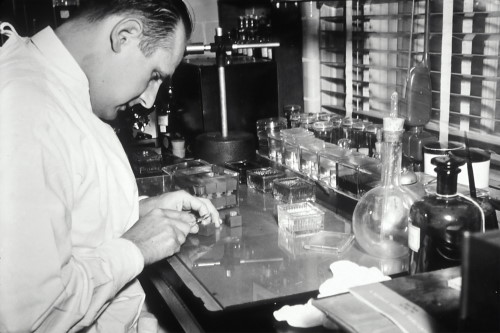Expert doctors list the key supplements that have been studied for their potential to lower blood sugar.
Blood glucose, commonly called blood sugar, is the main energy source for your body’s cells, originating from the foods you consume. Your diet is important in maintaining balanced blood sugar levels, helping you avoid significant fluctuations and feel your best. Supplements to lower blood sugar can also be a helpful factor in managing blood glucose levels.
BREAKING: This Keeps Your Blood Sugar Below 100 - Even When You're Eating Sweets!
Many studies have investigated whether supplements could aid in regulating blood sugar, and while some research points to the effectiveness of certain supplements, further, more thorough investigations are needed to understand their benefits fully. M. Regina Castro, MD, a Mayo Clinic endocrinologist, emphasizes, “It’s also important to remember that no single supplement alone can treat diabetes.” Effective management of diabetes involves a holistic approach, which includes a balanced diet, regular physical activity, monitoring of blood sugar levels, and when required, the use of diabetes medications or insulin therapy. Always consult your healthcare provider before introducing any changes to your regimen as they can advise whether it’s safe to incorporate supplements to lower blood sugar into your routine.
Ahead, we share some of the most commonly studied supplements and discuss the evidence that supports their potential to lower blood sugar.
Best supplements to lower blood sugar
1. Cinnamon
Often celebrated for its warm, distinctive flavor, cinnamon may also support blood sugar management. “There’s mixed research on cinnamon, but a number of studies have found that Ceylon cinnamon decreases insulin resistance and improves transport of sugar out of the blood and into our tissues and muscles,” explains Samuel Mathis, MD, MBA, a board-certified family medicine doctor and assistant professor of family medicine at the University of Texas Medical Branch. This spice proves its medicinal worth in small, potent doses. Research indicates that just 1/2 to one teaspoon of cinnamon daily can reduce blood sugar levels by up to 25%.
While cinnamon supplements are generally safe for most people when used in moderation and for short durations, caution is advised for long-term use and higher doses. “Higher amounts over extended periods may cause gastrointestinal issues or allergic reactions. Additionally, cinnamon could pose risks for individuals with liver disease,” notes Dr. Castro.
2. Aloe vera
Best known for its cooling relief on sunburns, aloe vera also shows promise in enhancing blood sugar control. Research suggests that this versatile plant improves the body’s insulin response. “Additionally, taking aloe vera may alleviate common diabetes symptoms such as fatigue, thirst, and nighttime urination,” shares Dr. Mathis. Over time, consistent use of aloe vera may lower hemoglobin A1c levels and fasting blood sugars. A typical daily dosage is 500 milligrams (mg).
3. Berberine
A staple in traditional Chinese and Ayurvedic medicine, berberine is known for its extensive health benefits. “A small study found that berberine worked to improve insulin production and sensitivity as well as the prescription medication metformin after three months of use,” explains Dr. Mathis.
Beyond its impact on insulin efficiency, berberine is also effective in improving cholesterol. The standard recommended dosage is 500 mg, taken three times a day.
4. Magnesium
Low levels of magnesium are often found in individuals with type 2 diabetes. Magnesium plays a pivotal role in glucose control and insulin metabolism. Research, including a significant 2017 review, shows magnesium supplementation can improve several health markers in diabetics. These include fasting blood glucose levels, HDL (good cholesterol), LDL (bad cholesterol), and triglycerides. Additionally, it was found to lower systolic blood pressure in people with diabetes.
5. Apple cider vinegar
Popularly used as a home remedy for everything from sore throats to skincare, apple cider vinegar is also being explored for its potential to help regulate blood sugar levels.
If you’re wondering if apple cider vinegar can lower blood sugar immediately, it is important to understand that while it can help reduce high blood sugar levels, results might not happen right away. Regularly using apple cider vinegar over time is necessary to see an impact on fasting blood sugar levels and reductions in hemoglobin A1c.
TRENDING: Diabetes Breakthrough Leaves Doctors Speechless - Try This Tonight
“It’s important to recognize that these studies were small, and there haven’t been any significant studies that have verified these results. If you choose to try apple cider vinegar, I recommend using organic, unfiltered, and raw, as this also has some healthy probiotics,” explains Dr. Mathis.
6. Probiotics
Probiotics are well-known for their benefits to gut health, but recent research suggests they may also play a key role in managing type 2 diabetes. A 2023 meta-analysis found that probiotics can significantly improve insulin sensitivity and reduce blood sugar levels. However, the effectiveness of probiotics varied widely across these studies, highlighting the need for additional research to determine the most effective strains, dosages, and treatment durations for diabetes management.








